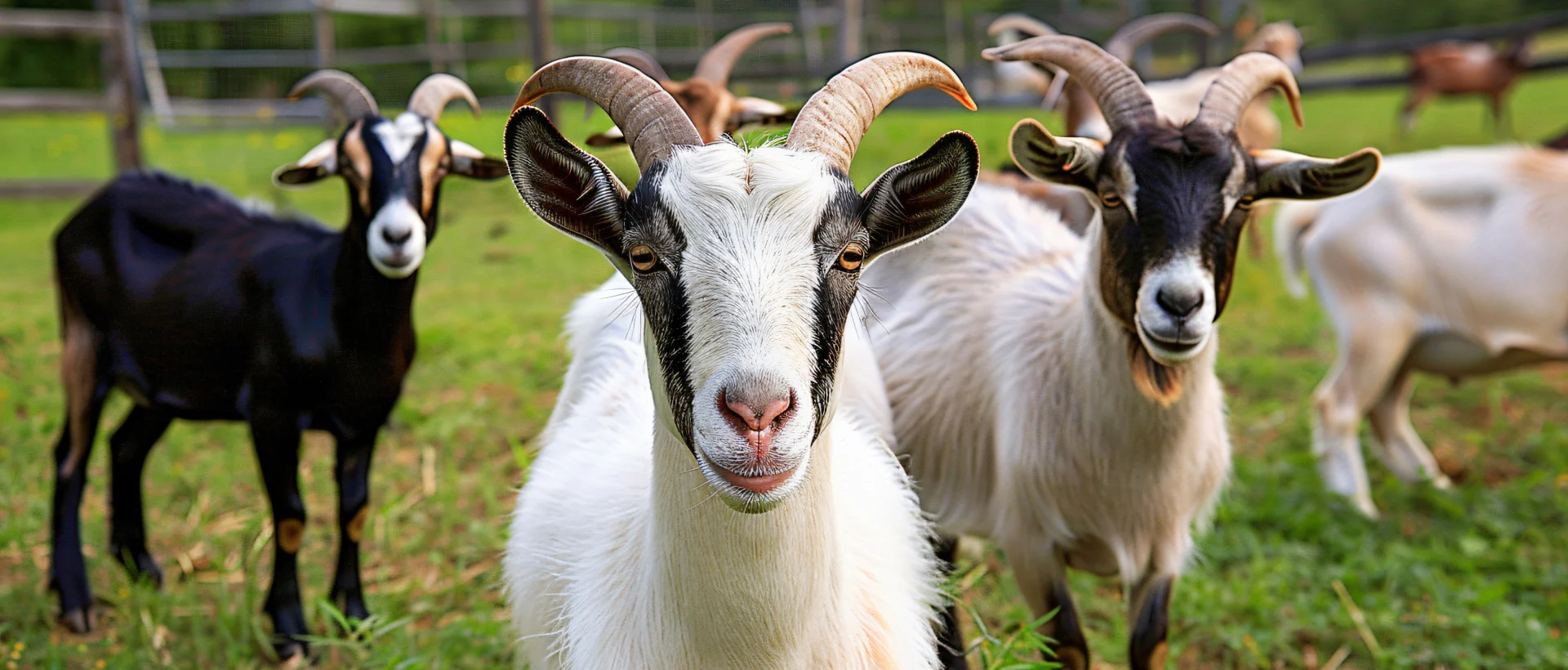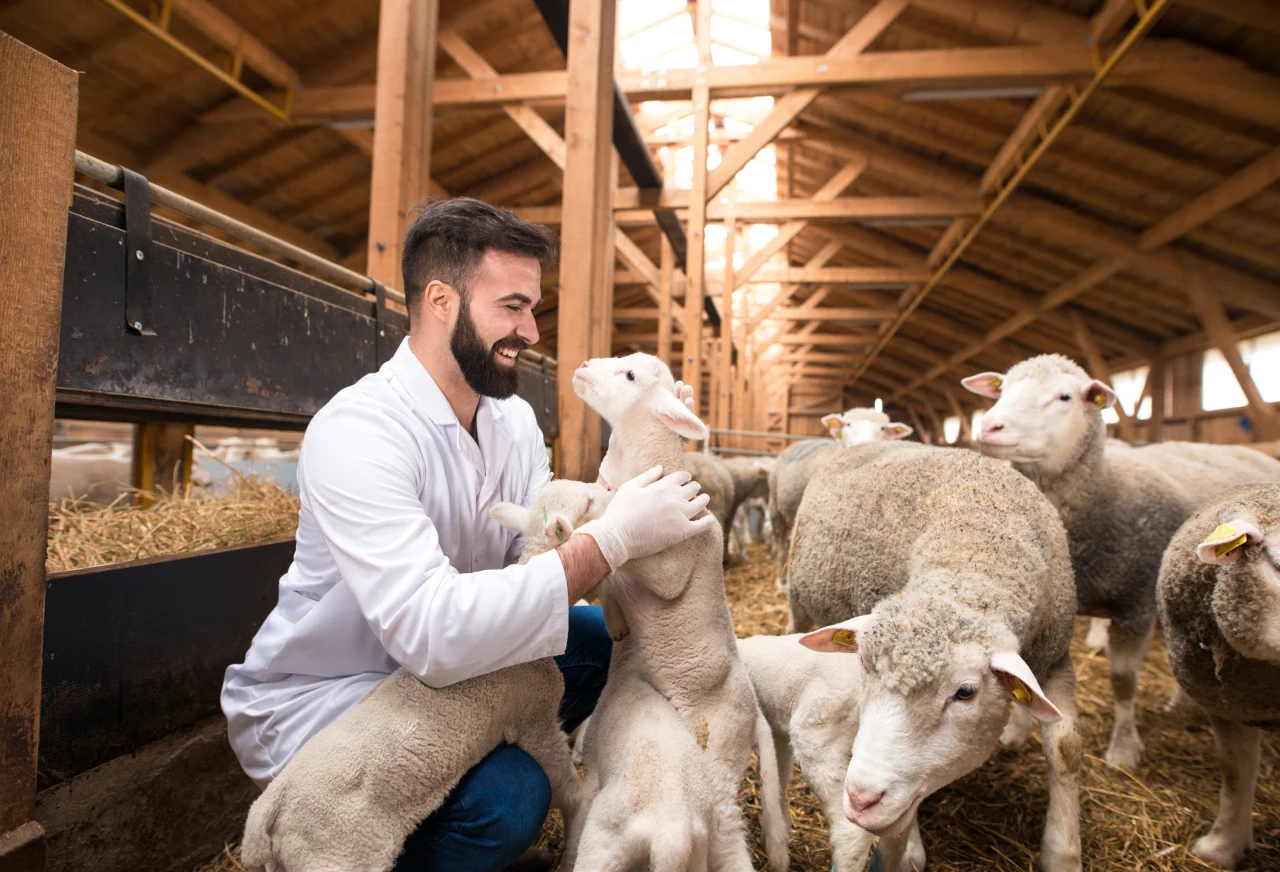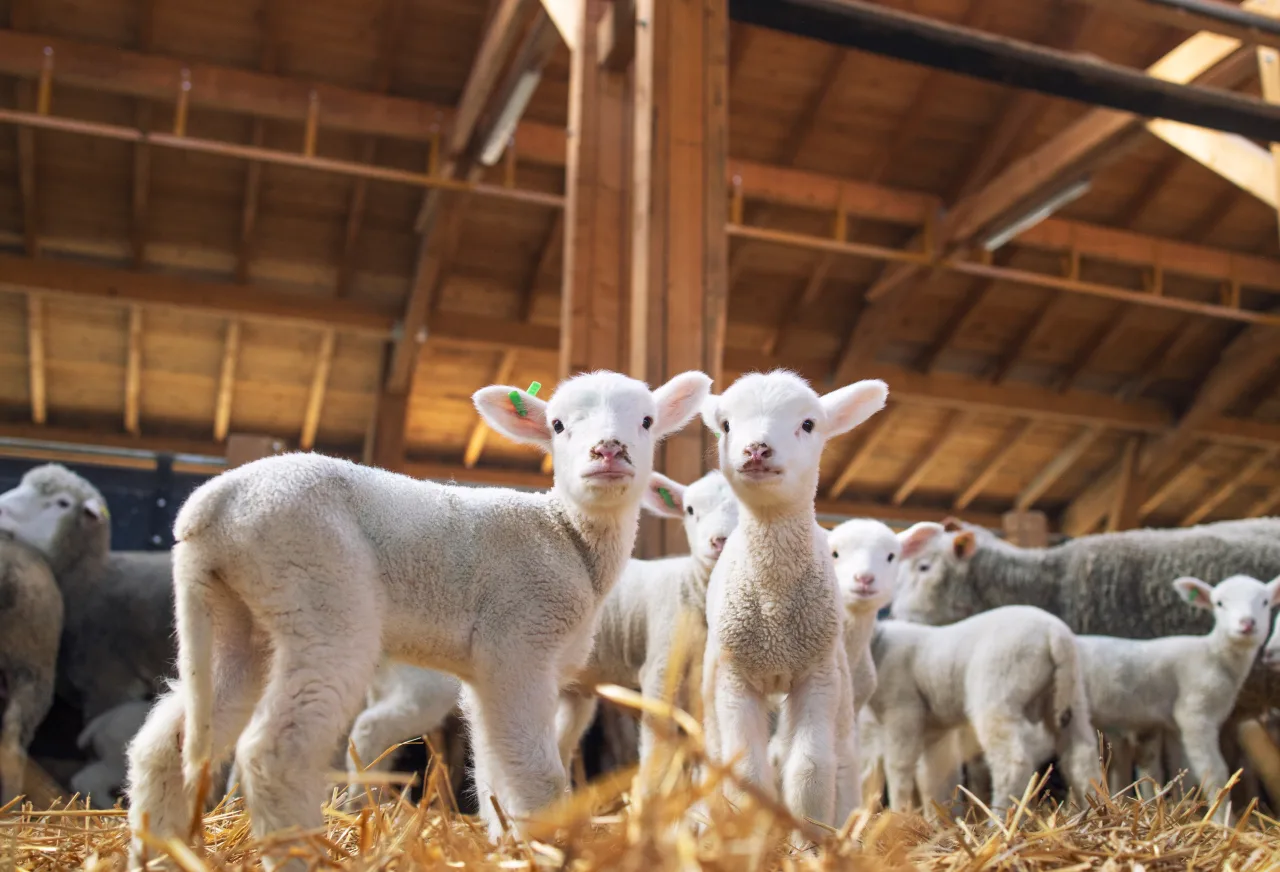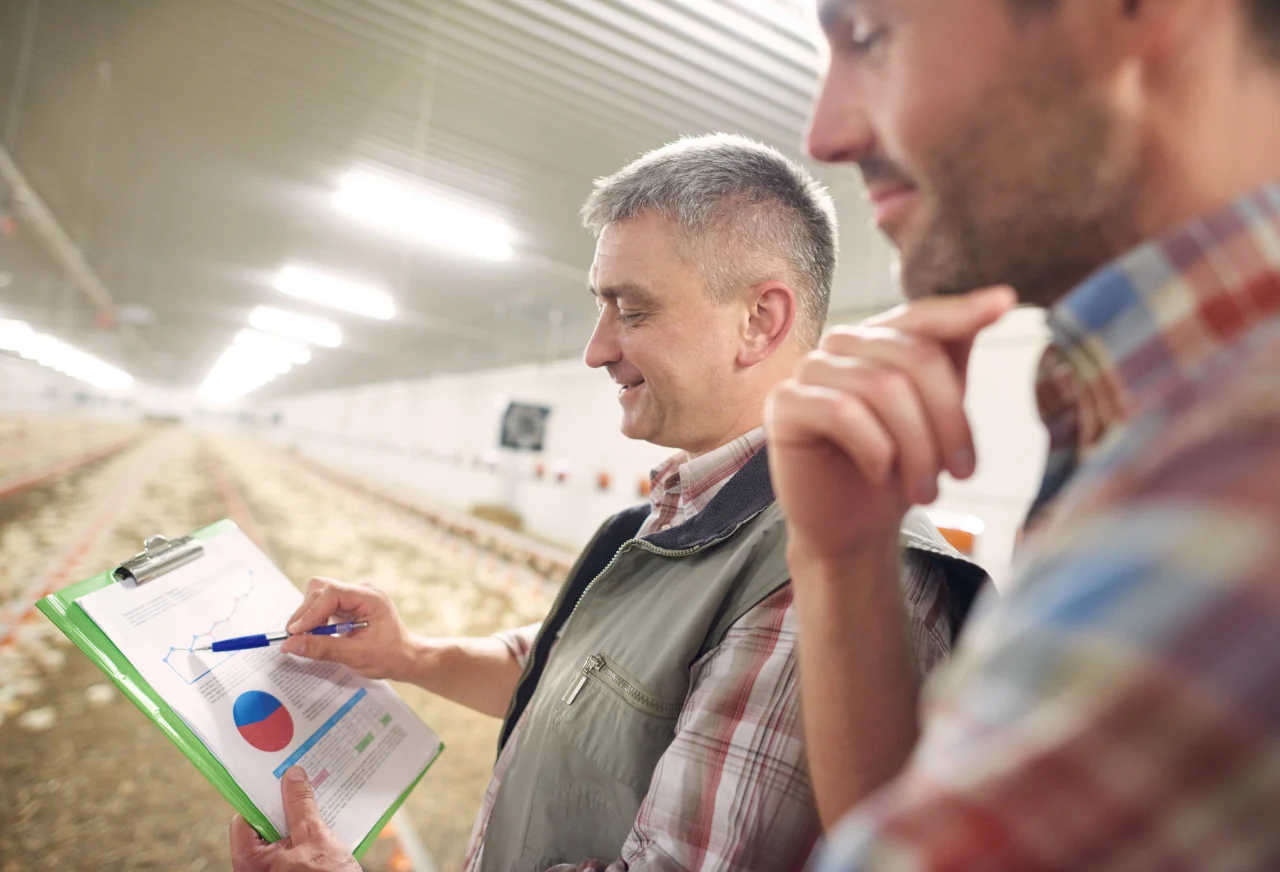Fill The Form To Get Quote
Our Other Services
Experience The Best Sheep & Goat Farming

Sheep and goat farming is a popular and versatile agricultural practice that can be highly profitable and sustainable when managed effectively. Both sheep and goats are valued for their meat, milk, wool, and other byproducts, and they can be farmed in various environments, from small-scale operations to large commercial enterprises.
Benefits of Sheep and Goat Farming:
Diverse Products:
Meat: Both sheep and goats produce high-quality meat. Sheep meat is known as lamb or mutton, depending on the animal’s age, while goat meat is often called chevon or cabrito.
Milk: Goat milk is highly nutritious and easier to digest than cow milk for some people. It is used for drinking, making cheese, yogurt, and other dairy products. Sheep milk is also rich and used in high-quality cheeses.
Feed Production: Integrated poultry companies often own feed mills that produce the specialized feed required for different stages of poultry growth. Controlling feed production helps ensure the quality and nutritional content of the feed, which is crucial for the health and growth of the birds.
Wool and Fiber: Sheep wool is a valuable fiber for textiles, while certain goat breeds, like Angora and Cashmere goats, produce luxurious fibers like mohair and cashmere.
Leather: Goat skin is used to produce high-quality leather.
Byproducts: Both animals provide manure, which is a valuable fertilizer for crops.
Adaptability:
Sheep and goats are highly adaptable to different climates and terrains. They can thrive in various environments, from arid regions to lush pastures.
Goats, in particular, are known for their ability to graze on a wide variety of vegetation, making them suitable for areas with less abundant resources.
Low Initial Investment:
Compared to other livestock, sheep and goats require relatively low initial investment in terms of housing, feed, and care. They are ideal for small-scale and beginning farmers, as well as for those looking to diversify their agricultural activities.
Quick Reproduction and Growth:
Sheep and goats have relatively short gestation periods (around 5 months) and can produce multiple offspring (twins, triplets, or more) in a single birth. This quick reproduction cycle allows for faster herd growth and quicker returns on investment.
Sustainable Farming:
Both sheep and goats can be raised sustainably, with proper rotational grazing, soil management, and integration into other farming systems. Their manure contributes to soil fertility, and their grazing helps manage vegetation, reduce fire hazards, and control invasive species.
Cultural and Economic Importance:
In many parts of the world, sheep and goats play a vital role in cultural traditions, food security, and the local economy. They provide income through the sale of meat, milk, wool, and live animals.
Key Considerations for Sheep and Goat Farming:
Breeds Selection:
Sheep Breeds: Common meat breeds include Dorper, Suffolk, and Dorset. Wool breeds include Merino and Rambouillet. Dairy breeds like East Friesian are preferred for milk production.
Goat Breeds: Meat breeds include Boer and Kiko goats. Dairy breeds like Saanen, Nubian, and Alpine are known for milk production. Angora and Cashmere goats are prized for their fiber.
Housing and Fencing:
Proper housing protects animals from extreme weather and predators. Sheep and goats need well-ventilated, dry, and clean housing.
Strong fencing is essential to contain the animals and protect them from predators. Goats are particularly known for being escape artists, so secure fencing is crucial.
Nutrition and Feeding:
Both animals require a balanced diet of forage (pasture, hay) supplemented with grains, minerals, and vitamins, especially during breeding, pregnancy, and lactation. Goats prefer browsing (eating shrubs, leaves, and trees), while sheep are primarily grazers (eating grass).
Health Management:
Regular health checks, vaccinations, and deworming are necessary to prevent diseases. Common issues include internal parasites, foot rot, and respiratory diseases. Access to clean water and mineral supplements is vital for their overall health.
Breeding and Reproduction:
Effective breeding management involves selecting quality breeding stock, monitoring the health and nutrition of pregnant females, and ensuring safe and clean birthing environments. Record-keeping of breeding dates, births, and lineage helps in managing genetics and improving herd quality.
Marketing and Sales:
Successful sheep and goat farming also depends on identifying and targeting markets for meat, milk, wool, or breeding stock. Building relationships with local butchers, processors, and consumers, as well as exploring niche markets like organic or grass-fed products, can enhance profitability.
Sustainability Practices:
Implementing rotational grazing, conserving pastures, and integrating sheep and goats into mixed farming systems can enhance sustainability. Sheep and goats can also be part of agroforestry or silvopasture systems, where they graze under trees, contributing to diversified farm income.
Challenges in Sheep and Goat Farming:
Disease Management: Parasite control and disease prevention are ongoing challenges that require regular attention and management.
Predation: Predators like coyotes, wolves, and stray dogs can be a significant threat, especially to young animals.
Market Fluctuations: The prices of meat, wool, and milk can fluctuate, impacting profitability. Sheep and goat farming offers numerous opportunities for farmers, especially those interested in sustainable and diversified farming practices. With proper management, it can be a rewarding venture that provides multiple income streams and supports rural livelihoods.
Promotion
Earn Up to 55% Profit with Royal Farms’ Integrated Poultry Model!
Start your poultry journey with Royal Farms and earn up to 55% profit through smart integration and expert-led farm support.
Our USP for Sheep & Goat Farming
Precision, Performance, and Profitability – All Under One Roof
Royal Farms poultry operations lies a unique blend of innovation, efficiency, and farmer-centric practices. Our Environmentally Controlled (EC) Sheds are designed to deliver consistent quality, optimal bird health, and seamless integration across every stage of poultry production.
Tailored Breed Selection

We guide you in choosing the right breeds—Boer goats, Saanen goats, or Dorper sheep—for your specific goals and region.
Expert Housing Support

We help design practical, predator-proof housing that keeps your livestock safe, dry, and healthy year-round.
Hands-on Training & Support

From veterinary care to breeding cycles, we provide the tools and knowledge to keep your farm thriving.
Sustainable growth starts with smart farming – Royal Farms delivers results you can count on.
- Royal Farm

Our Integrated Poultry Farming EC Shed
Bringing Profitable Sheep & Goat Farming to Coimbatore
Royal Farms is now empowering livestock farmers across Coimbatore with expert-guided, high-yield sheep and goat farming. Whether you’re just starting or looking to expand, our EC-shed inspired model ensures healthy animals, better reproduction, and consistent returns.
Why Choose Us
Your Trusted Partner in Smart, Scalable, and Sustainable Sheep & Goat Farming Solutions
At Royal Farms, we don’t just build poultry sheds—we build success stories. Our integrated EC shed model combines cutting-edge technology, expert guidance, and a farmer-first approach to deliver unmatched performance, productivity, and profitability.
Guidance from livestock specialists and real-time farm assistance when you need it most.
From breed selection and feed to health management and market linkage—we’ve got it all covered.
Our farmers report up to 55% profit using our streamlined model and local market strategies.
Start small, grow big—with eco-friendly systems that work with nature, not against it.

Testimonials
Voices That Trust Royal Farm
real stories that inspire trust in Royal Farm.










